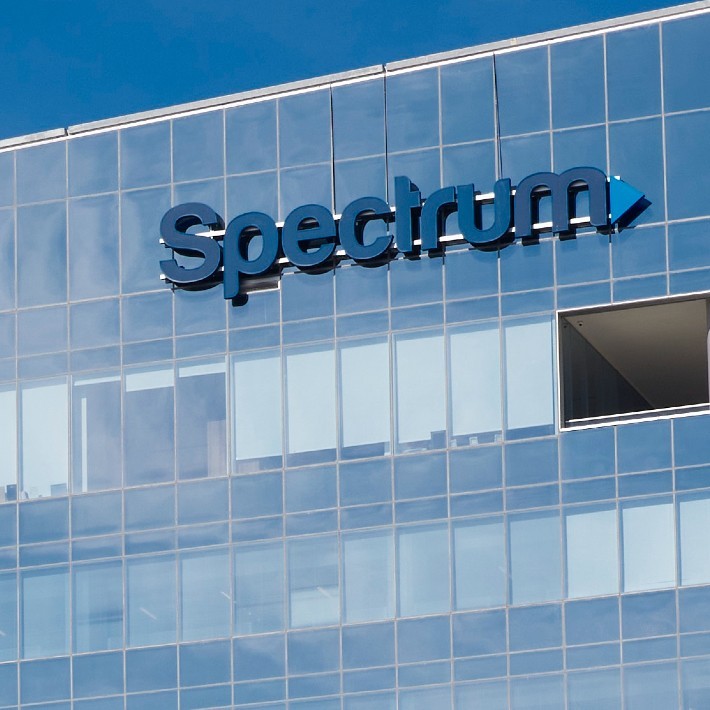Charter's targeted use of CBRS for offload will help to reduce MVNO costs. It's not a must-do, 'but it's an upside,' says company Chairman and CEO Tom Rutledge.

Spectrum Mobile, a service that Charter Communications launched broadly in the fall of 2018, has turned an important financial corner.
"It is profitable as a standalone business," Tom Rutledge, Charter's chairman and CEO, declared Wednesday in a wide-ranging conversation at Morgan Stanley's Technology, Media & Telecom Conference. "The way we price it and we continue to see the cost structure of that business developing, it will get even more profitable as we grow."
Figure 1:  Charter added a record 380,000 mobile lines in Q4 2021, ending the year with 3.56 million.
Charter added a record 380,000 mobile lines in Q4 2021, ending the year with 3.56 million.
(Source: Charter Communications)
Update: When asked to clarify how the company defines profitability in this instance, a Charter official told Light Reading that Spectrum Mobile is profitable on a pre-subscriber acquisition cost basis. Charter's mobile business generated an EBIDTA loss of $92 million in Q4 2021, roughly the same as the year-ago period, and an EBIDTA loss of $311 million for all of 2021.
Charter's profitability declaration comes nearly a year after Comcast announced that its Xfinity Mobile business had become profitable on a standalone basis. Both Spectrum Mobile and Xfinity Mobile are underpinned by MVNO deals with Verizon and backed by their respective Wi-Fi networks. Charter added a record 380,000 mobile lines in Q4 2021, ending the year with 3.56 million.
Charter and Comcast also have licensed CBRS spectrum holdings, and Charter is already pushing ahead with its first market deployment. The plan is to roll out CBRS radios in high-traffic areas and offload traffic to its own network in a way that lowers MVNO costs.
"It's not that we have to do that to be successful with our current strategy, but it's an upside," Rutledge said, echoing what he said in January. He said that Charter primarily views CBRS as a cost-reducer but noted that it would also position the company to enhance its product with additional capacity.
"I think we can actually make our mobile product be superior to that which is sold by a mobile company only by using the way it interacts with our Wi-Fi network and the way it interacts with CBRS to actually give you more throughput than you would get otherwise," he added.
It's still early days for Charter with respect to mobile, and there's plenty of runway left. Rutledge estimates that there are 120 million mobile lines in service in Charter's footprint.
Shrugging off FWA competition
Shifting to home broadband, Rutledge seems to share the sentiment Comcast CEO Brian Roberts offered this week about fixed wireless access (FWA) competition – namely that it doesn't pose much of a threat.
"If you look at DSL and VDSL, I think we have a superior business and we're taking those businesses away. I think the same will be true of fixed wireless," Rutledge said. "I don't think it [FWA] will really stay with us from a competitive point of view, not that it will have no impact … But I think we can be better and more competitive."
Charter is going with fiber-to-the-premises (FTTP) for all new builds but intends to push ahead with "high-split" upgrades on its widely deployed DOCSIS 3.1 network, a move that will enable symmetrical, multi-gigabit broadband. DOCSIS 4.0 upgrades will follow.
Rutledge said that path makes the most sense from both a performance and cost perspective, holding that next-gen hybrid fiber/coax (HFC) technologies give Charter a platform "virtually equivalent" to FTTP and can be deployed rapidly at a lower cost.
"We think we can build that capability in an evolutionary, cost-efficient way that we can match what fiber can do in the meantime," Rutledge said. "We have the ability to get ourselves in front of any competitive situation quickly."
Multi-gig symmetrical services a 'marketing claim'
Charter's strategy is taking shape as AT&T, Verizon, Frontier Communications, Ziply Fiber and other telcos get aggressive with rollouts of multi-gig symmetrical services delivered on FTTP.
"It's a marketing claim," Rutledge said of the rapid rise of multi-gig services. "It's a claim without much reality from a [broadband] use perspective. Even 1-Gig down is, to some extent, a marketing play from a reality perspective."
Following its aggressive bidding in phase I of the Rural Digital Opportunity Fund (RDOF), Charter intends to keep pushing as broadband dollars are meted out for President Biden's infrastructure bill. Charter, Rutledge said, is bidding on state money that is filtering down from the stimulus bill and is already "winning some of those."
Related posts:
— Jeff Baumgartner, Senior Editor, Light Reading
About the Author(s)
You May Also Like











